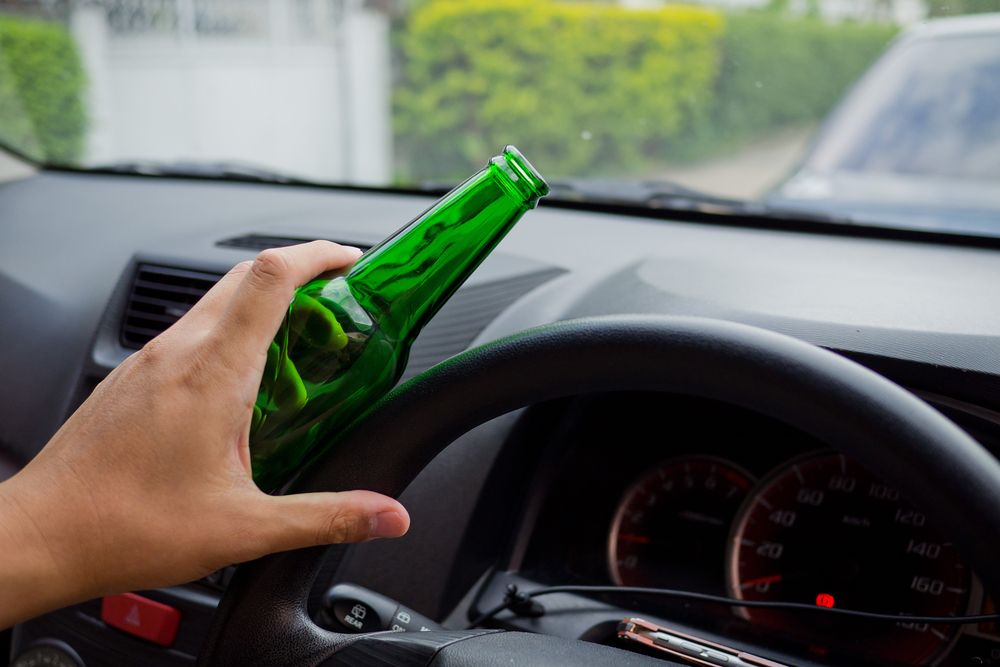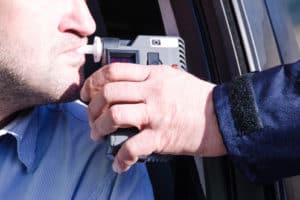
You have the right to remain silent if you are arrested for a DWI in Texas. You also have the right not to willingly comply with every request made by a police officer. For example, a person has the right to refuse to submit to a breathalyzer. Even though you are refusing, remember to still be polite.
However, refusing to take a breathalyzer test can be used against you in court. Your refusal could also cost you your driving privileges.
Implied Consent Law
All states have an implied consent law for DWI, and TX Transportation Code § 724.001 establishes state parameters for implied consent. The implied consent law only goes into effect after you are arrested for a DWI. Just getting pulled over isn’t enough, a police officer must have probable cause to place you under arrest.
The implied consent law assumes that you will agree to a breathalyzer test when you’re arrested. At the same time, law enforcement can give you the test if you don’t submit to it. There are some exceptions established by TX Transportation Code § 724.012. After developing probable cause, an officer can obtain a search warrant to take your blood without your consent. This could happen in any DWI situation, but most likely when:
- You’re in an accident in which someone died or was seriously injured
- You already have a DWI conviction in which a child was in the vehicle
- There was someone 15 years old or younger when you were arrested
- You have a previous conviction of at least one DWI offense
This is why you might want the help of a DWI attorney as soon as possible. Your lawyer will examine the possible defenses for your case.
Legal Intoxication in Texas
Per TX Penal Code § 49.01, legal intoxication is when your blood alcohol concentration goes to 0.08%, but you are breaking the law as soon as your alcohol intake influences your driving ability.
For a police officer to legally stop you, the officer must have probable cause, articulating the fact that you committed a traffic violation. In many DWI cases, law enforcement can cite a traffic law violation like:
- Failure to stay in a single lane
- Speeding
- Failing to stop at a designated stop sign
First DWI offense
The penalties for a first DWI offense in Texas, summarized by the Texas Department of Transportation, are:
- Up to a $2,000 fine
- Loss of driver’s license for up to 12 months
- Up to 180 days in jail
- A state fine of between $3,000 – $6,000 upon sentencing
A DWI record can hurt your ability to find an auto insurance policy or a job, and it may even impact a bank’s choice to lend you money.
Law Enforcement Can Take Away Your License
The police will take your driver’s license if you are arrested on for a DWI. The arrest occurs when you refuse to offer a blood or breath specimen or give a breath specimen that results in over .08. You will receive a notice of suspension in the mail, but whether or not you consent to a sobriety test will impact the time period for requesting a hearing.
If you consented to a test, make sure you request an Administrative License Revocation (ALR) hearing within 20 days from the notice’s mailing date. Otherwise, the Texas Department of Public Safety will continue with your license suspension 40 days after the notice was received.
If you refuse to take a breathalyzer, your license will be suspended. The officer will take your license and give you a temporary permit. You have 15 days from the notice date to request an ALR hearing. If you don’t request a hearing, the suspension goes into effect 40 days after you were served with the notice.
If Your License Gets Suspended
According to the Texas Department of Public Safety, you may request an occupational driver’s license if this is your first license suspension. With this license, you can drive up to 12 hours every day. There are just two restrictions you will have to follow:
- You can’t go over your 12-hour daily limit
- You must stipulate which counties you will be driving to when you obtain an occupational driver’s license. You can’t go beyond these areas.
Hiring an Attorney for a Texas DWI Charge
When looking for a criminal defense lawyer, check their case results and testimonials to see if the lawyer and their firm will meet your needs. You want a lawyer who will treat you with dignity and devote their time to your case.
Defending your DWI Charge
At the Law Offices of Randall B. Isenberg, we have been defending Dallas-Fort Worth area residents from DWI charges for years. Our legal team can provide you with an effective criminal defense. With 30 years of experience as a career as a state district judge and former prosecutor, Randall B. Isenberg can help.
Call our Dallas, TX criminal defense law firm if you have a drunk driving charge, we offer free case evaluations 24/7. To get your free case evaluation and discuss your next steps, call (214) 390-2670 today.










